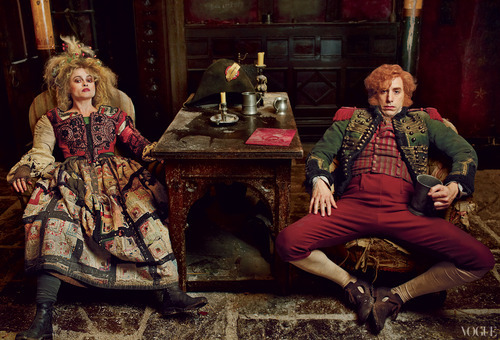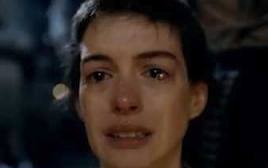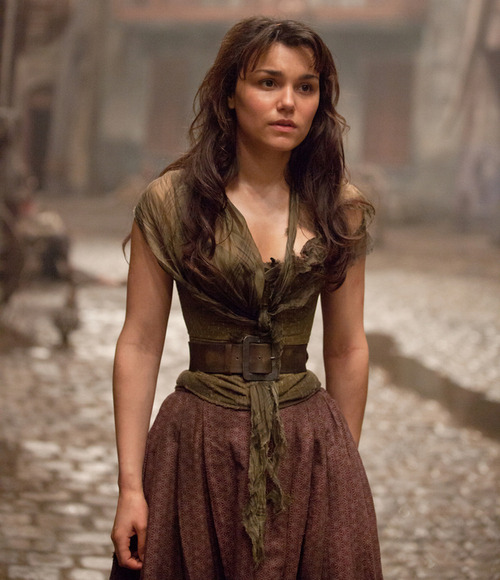Les Misérables

Year: 2012
Director: Tom Hooper
Cast: Hugh Jackman, Russell Crowe, Anne Hathaway
Run Time: 2 hours, 37 minutes
MPAA Rating: PG-13
Director: Tom Hooper
Cast: Hugh Jackman, Russell Crowe, Anne Hathaway
Run Time: 2 hours, 37 minutes
MPAA Rating: PG-13
The December 25th release of Les Misérables made for a not so merry Christmas. Popcorn and tears covered theater floors in equal proportions.
From the beginning, this movie had several strikes against it in terms of the modern audience:
- It is a musical.
- It is a musical about the French Revolution.
- It is a musical about the French Revolution in which all but 10-odd lines or so are sung.
- It is over two hours long.
- It was released on a holiday.
In spite of this, Les Mis made a ludicrous amount of money. On Christmas Day alone, it earned 18.2 million dollars.
That’s 8 million more than Rent made in its first weekend.
That’s 9 times the opening gross of Chicago, 6 times more than Little Shop of Horrors, and twice as much as Sweeney Todd.
That’s twice as much money as Once made in its entire run.
The theater I work at had to open another screening room just to accommodate the influx of ticket buyers.
So the question we need to ask is, in terms of quality, did this movie truly earn its box office?
The answer is yes.
You guys, Les Misérables is friggin’ incredible.
Yes, it is over-the-top, bombastic, and occasionally full-of-itself. But you know what? It’s a musical. Those qualities might kill a normal movie, but only serve to enhance the spectacle that provides the lifeblood of this narrative.
[Warning, spoilers ahead. While the idea of “spoilers” doesn’t really apply to Les Mis, because it’s more about the performances than the narrative, if you want to remain in the dark about who lives and dies, I advise you skip past the next few paragraphs to the picture of the adorable bunny.]
For those of you who don’t know, the story (based on the Victor Hugo novel of the same name) follows ex-convict Jean Valjean (Hugh Jackman) across three decades of his life. Essentially, the movie is divided into chapters, the first of which follows him after his release from a 19-year sentence (his crime: stealing a loaf of bread). A local preacher shows him how to be an honest man, and Valjean escapes parole to become the mayor of a small French town. The police Inspector Javert (Russell Crowe) devotes himself to tracking Valjean down in the name of justice.
The second chapter focuses on Fantine (Anne Hathaway), a factory worker who was turned out onto the street for bearing an illegitimate child. Her daughter Cosette (Isabelle Allen) is in the care of two conniving innkeepers, Mssr. and Madame Thénardier (Sacha Baron Cohen and Helena Bonham Carter) who demand more and more money from her. To pay off her debt, Fantine turns to selling her hair and teeth and eventually turns to prostitution. Her pride broken, she eventually succumbs to a severe case of Death (It’s a musical. These things just kind of happen.). Valjean, now the mayor, vows to take care of her daughter and retrieves her from the Thénardiers (after paying quite a hefty sum). Javert discovers Valjean’s true identity and tries to stop him but he escapes and is once more on the run, little Cosette in tow.
The third chapter (which one could alternatively think of as the Second Act) revolves around the rebellion in Paris. A bunch of college-aged men, chief among which are Marius (Eddie Redmayne) and Enjolras (Aaron Tveit, a personal hero of mine), are preparing to fight against the king and the unfair justice system. Valjean has retired to a small home on the outskirts of the city with a now teenage Cosette (Amanda Seyfried). In an effort to prevent her from knowing his true identity as well as escaping capture, he has become a recluse and quite an over-protective parent. One day in the Parisian markets, Valjean is discovered by the Thénardiers as they try to scam him for money. Javert is called in, and Valjean rushes home to pack his things and skip town, much to the dismay of Cosette, who has met and instantly fallen in love with Marius.
Marius enlists the help of his friend Éponine (Samantha Barks), the daughter of the Thénardiers, to track down Cosette. She does so, although she is madly in love with him. He abandons his rebel brothers to try and find her, but upon learning that she is being taken across the sea, he is heartbroken and returns to fight. The battle begins at a barricade blocking off a side street. Javert, dressed as a Parisian, seeks to undermine them but is discovered and tied up to be dealt with later. The rebels are joined by Éponine, dressed as a man, and Valjean, who shows Javert mercy and secretly sets him free, much to Javert’s dismay.
The battle begins and the casualties soar. Éponine sacrifices herself for Marius and dies in his arms, finally revealing her love. Marius is wounded, and his unconscious body is dragged into the sewers by Valjean, who once again encounters Javert. Javert, ever devoted to his concept of justice, attempts to capture Valjean, but is convinced to let him through, saving Marius’s life. Although he has done a good deed, he is conflicted by his duty to justice and the fact that Valjean spared his life and ends up hurling himself off a bridge.
The rebels fall, the revolution fails, and Marius and Cosette are reunited in the wake of tragedy. On their wedding day, Valjean can no longer bear to hold his secret over Cosette and runs off to a monastery. He doesn’t want Cosette to know his true identity, and has left, finally realizing it is how he can best protect her from ever being in danger. However, Marius and Cosette track him down and are there to comfort him as he dies of Being Old and finally rejoins Fantine in the afterlife as trumpets blare and the voice of the revolution lives on in the memories of all that have sacrificed themselves for it.
Now. That’s quite a lot to swallow. And that is a bare bones summary. Now you understand why this movie has such an expansive run time.

OK spoilers crew, we’re safe now.
The story of Les Misérables is tragic and beautiful (sorry to tantalize you spoiler-fearing guys) and the filmmakers mostly manage to capture the grandiosity of it all, especially in the ensemble numbers (Look Down, At the End of the Day, Red and Black, One Day More, and the Epilogue).
Now let’s talk about the Grand Experiment. Singing live in camera is something that has never been attempted on this scale before and it overwhelmingly, undeniably, works.
This method allows the actors much more freedom to emote and feel the music and produces some absolutely incomparable performances. Anne Hathaway’s I Dreamed a Dream is, and I have no doubt in my mind about saying this, the absolute best performance of that song that has ever been sung. Eddie Redmayne’s Empty Chairs At Empty Tables and Hugh Jackman’s performance of Valjean’s Soliloquy are also standouts of the craft.
My God you guys, what an absolute success.
Now I’m sure you’ve heard people deriding Russell Crowe’s voice and it’s true that he cheats on the octaves occasionally and his voice is certainly less polished than the other performers but let me tell you it totally works for the character of Javert, an overly upright servant of the law.
Personally, I was more bothered by Redmayne’s voice. While he can certainly sing and I’ve already raved about his performance of Empty Chairs at Empty Tables, overall he kind of sounded like he had a frog in his throat the entire time and it irritated me more often than not.
Also to those of you who doubted Amanda Seyfried, she hits some spectacular high notes. And if you absolutely can’t stand her, don’t worry, she’s really not in that much of the movie.
The film also features two astoundingly well-rounded performances from child actors, which is decidedly uncommon.
I’d have to say my biggest qualm going into the film was about Baron Cohen and Bonham Carter’s presence, but they nailed it. The Thénardiers are the comic relief of Les Mis, and they are given a lot to work with. I’m normally irritated with Sacha Baron Cohen beyond all reason, but his performance was absolutely organic and natural, not at all distracting from the overall narrative.

So far, I’ve had very little negative to say about the movie, so I think it’s time to raise my biggest complaint: the camera work.
The cameraman clearly adored extreme close-ups, which have their place in a film, but they were so overwhelmingly featured that sometimes the film felt claustrophobic, and once a solo number started, the camera would fix itself in place and resolutely refused to move.

I Dreamed a Dream was this. For three minutes. I’d have loved to see more dynamic cinematography, but I suppose it’s not too much of a sin to let this performance speak for itself.
In closing, Les Misérables is a huge film with huge ambition and almost entirely across the board achieves what it sets out to do. A caveat, it’s definitely a movie that you have to be in the right mood for, and if you prefer comedies, run in the opposite direction as quickly as you can. But even if you don’t like musicals, I urge you to try this one out. It’s manly, it’s about criminals and war. The operatic style with little dialogue and the in camera vocal work are both unique in the world of film musicals and it’s definitely worth it to see for that as well.
Odds and ends: DAT WAIST

TL;DR: Les Misérables is a film of epic proportions featuring heart-wrenching performances, stellar vocals, and a complex and subtle story about the true meaning of justice, virtue, love, and dreams.
Rating: 9/10
Side Bar: This long-winded article contains 1,704 words, which is about 0.3% of Victor Hugo’s 1,500 page novel. Try that on for size.
Word Count: 1749
No comments:
Post a Comment